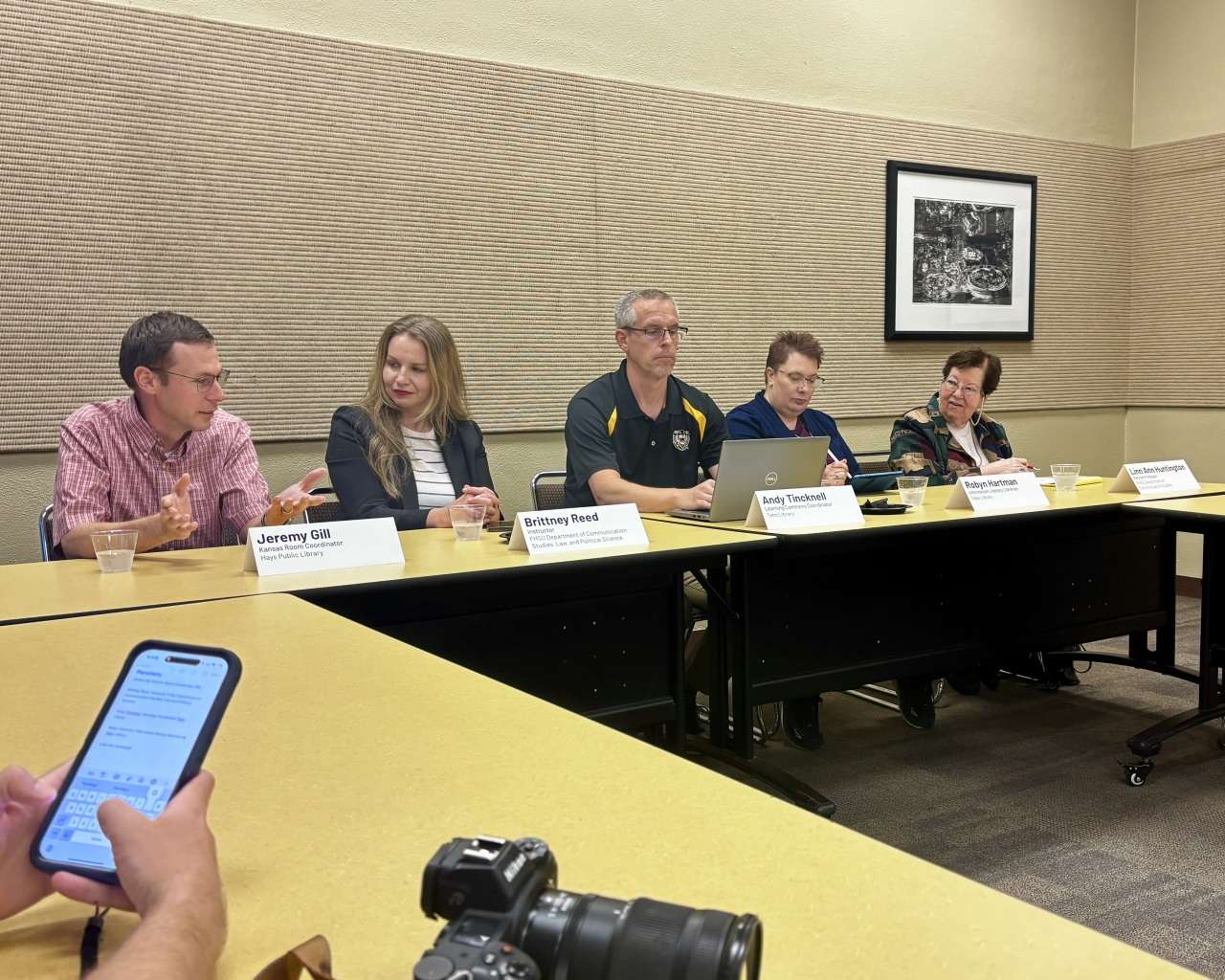
By TONY GUERRERO
Hays Post
As artificial intelligence blurs the line between fact and fiction, Fort Hays State University hosted a panel on Thursday to avoid online media manipulation and misinformation.
Panelists included journalist Lynn Ann Huntington; FHSU information literacy librarian Robyn Hartman; FHSU learning commons coordinator Andy Tincknell; FHSU communication studies instructor Brittney Reed; and Hays Public Library Kansas Room Coordinator Jeremy Gill.
The event was part of the Hays Public Library's How-To Series. Audience members engaged with the panelists, beginning with the question, “How do we determine what’s real and what’s not?”
"It's a 50/50 coin toss whether we can really identify whether something is fake or real," Tincknell said, referencing a study from the Communications of the Association for Computing Machinery. "It's getting tough, and it's going to get tougher."
Tincknell said technology meant to detect false information is lagging behind the rapid improvements in how effectively misinformation can deceive the public.
Hartman encouraged people to slow down when consuming news online and recommended using the SIFT method, short for stop, investigate the source, find better coverage and trace the context.
The panel noted the same approach applies to videos and images, highlighting Google’s reverse image search tool as a way to trace the origin of visual content.
Reed added another useful approach is consensual validation, which is checking multiple sources on a topic to confirm the same set of facts.
"If you're just seeing it from one source, I will often tell my students to take that with a grain of salt," she said. "You want to find several sources that are saying the same thing, particularly when it's information that seems too crazy to be true. Be looking into those other avenues."
One audience member asked Reed whether she honestly expected most people to spend that much time verifying information. Huntington replied, “It depends on how badly they want to know the truth.”
Huntington said traditional editors serve as “gatekeepers,” filtering out weak stories, but online platforms no longer provide that oversight, leaving users to act as their own editors.
The panel also warned of relying on AI for research, noting that it can generate convincing false citations and articles, and might require further research to verify information independently.
Several panelists discussed their experiences with AI in the classroom. Hartman said some students have asked her to help find articles, only to discover that they never existed.
"I ask, 'Where did you get the title of this?' and they eventually confess that they used AI for sources they could use. It's close, maybe the author has written on that topic, but then AI says, 'Here's a book that they wrote,' and that author has not written that book," she said.
Panelists did note some benefits of AI, particularly when it’s used as a tool for brainstorming rather than a source of definitive answers.
Reed said one thing missing in today’s digital age is peer accountability on online platforms and urged people to hold each other responsible for what they share.
"We get this online disinhibition where we don't have to face the consequences of posting something that was incorrect," Reed said. "That's a message we need to share with each other to try to shift the culture a little bit."






